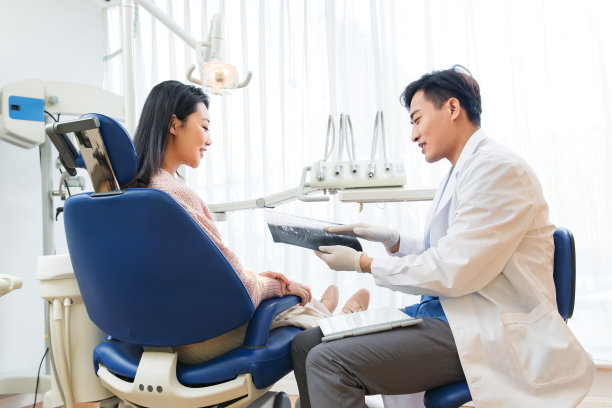Essential Precautions to Follow After Receiving a Dental Filling for Optimal Oral Health Maintenance
Summary: After receiving a dental filling, following essential precautions is crucial for maintaining optimal oral health. This article explores four primary areas: understanding post-treatment sensitivity, dietary considerations, proper oral hygiene practices, and scheduling follow-up appointments. By adhering to these guidelines, patients can enhance the longevity of their fillings, prevent complications such as discomfort or decay, and ensure a smooth recovery. Through careful management of the healing process, individuals can maintain strong dental health and avoid future dental issues, fostering a healthier overall lifestyle.
1. Understanding Post-Treatment Sensitivity

After a dental filling, it is common to experience some post-treatment sensitivity. This condition may present itself as mild discomfort or a sharper pain when chewing, drinking hot or cold beverages, or even during regular oral hygiene practices. It is important to recognize that this sensitivity usually subsides within a few days to weeks. However, if it persists, consulting your dentist is crucial to rule out any complications.
The sensitivity experienced can be attributed to the dental materials used in the filling process, as well as the surrounding nerves adjusting to the new changes. To alleviate discomfort, consider using toothpaste specifically designed for sensitive teeth. These products can help reduce the sensitivity over time and allow for a more comfortable brushing experience.
Additionally, avoiding overly hot, cold, or sugary foods during the initial recovery period can significantly minimize discomfort. Eating softer foods and gradually reintroducing more challenging items can help your teeth acclimate without additional strain.
2. Dietary Considerations After a Filling
Diet plays a crucial role in sustaining the integrity of dental fillings. After receiving a filling, it is advisable to avoid chewing hard foods such as nuts, ice, or hard candies for at least 24 hours. This precaution can help prevent the filling from shifting or cracking while the material sets properly. Soft foods like yogurt, mashed potatoes, and pudding can provide nourishment without risking damage to the newly placed filling.
Moreover, limiting the intake of sticky or chewy foods is essential. Items like caramel, toffee, and chewy candies can easily dislodge fillings or pull them out, leading to further dental issues. Opting for a diet rich in fruits, vegetables, and lean proteins promotes overall dental and oral health while also aiding the healing process.
Stay hydrated and drink plenty of water to help rinse away food particles and bacteria from your mouth. This practice acts as a natural way to maintain oral hygiene and support the healing of the treated tooth.
3. Proper Oral Hygiene Practices
Maintaining proper oral hygiene is crucial after receiving a dental filling. It is vital to resume brushing and flossing as soon as possible, but one must be gentle around the filled area to avoid irritation. Using a soft-bristled toothbrush can ensure effective cleaning without causing discomfort to the sensitive tooth.
Incorporating anti-bacterial mouthwash into your oral care routine can also benefit your healing process. Rinsing with mouthwash helps reduce bacteria in the mouth, preventing potential infections while the filled tooth is still susceptible to irritation.
Moreover, regular dental check-ups and cleanings are essential for monitoring the condition of the filling and surrounding teeth. Your dentist can provide personalized recommendations based on your unique oral health situation, ensuring that you stay on top of your dental care regime.
4. Scheduling Follow-Up Appointments
It is imperative to schedule follow-up appointments after receiving a dental filling. These visits allow your dentist to assess the fillings condition and make any necessary adjustments. If any complications arise, they can address them promptly to prevent further dental damage.
Follow-up appointments provide an opportunity to discuss any persistent sensitivity or discomfort you may be experiencing. Your dentist will evaluate the filled tooth and offer solutions or alternative treatments if needed. Early intervention can often prevent the need for more extensive dental work in the future.
Additionally, regular check-ups encourage good communication between you and your dentist. This collaboration ensures that all aspects of your oral health are addressed, leading to better overall outcomes and a healthier smile.
Summary:
In conclusion, adhering to the essential precautions outlined after receiving a dental filling is vital for maintaining optimal oral health. Understanding post-treatment sensitivity, making informed dietary choices, practicing effective oral hygiene, and scheduling regular follow-ups are critical steps toward ensuring that your dental fillings remain intact while promoting better overall dental health.
This article is compiled by Vickong Dental and the content is for reference only.



